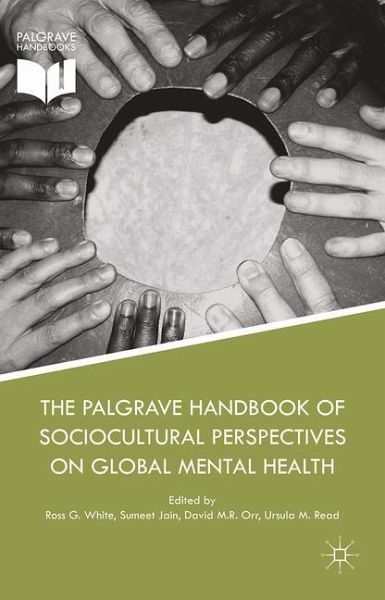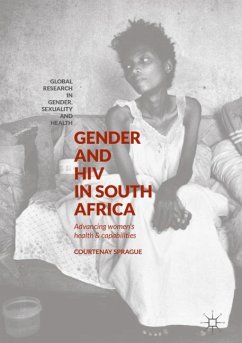
The Palgrave Handbook of Sociocultural Perspectives on Global Mental Health
Versandkostenfrei!
Versandfertig in 6-10 Tagen
288,99 €
inkl. MwSt.

PAYBACK Punkte
144 °P sammeln!
This handbook incisively explores challenges and opportunities that exist in efforts aimed at addressing inequities in mental health provision across the globe. Drawing on various disciplines across the humanities, psychology, and social sciences it charts the emergence of Global Mental Health as a field of study. It critically reflects on efforts and interventions being made to globalize mental health policies, and discusses key themes relevant for understanding and supporting the mental health needs of people living in diverse socio-economical and cultural environments. Over three rich secti...
This handbook incisively explores challenges and opportunities that exist in efforts aimed at addressing inequities in mental health provision across the globe. Drawing on various disciplines across the humanities, psychology, and social sciences it charts the emergence of Global Mental Health as a field of study. It critically reflects on efforts and interventions being made to globalize mental health policies, and discusses key themes relevant for understanding and supporting the mental health needs of people living in diverse socio-economical and cultural environments.
Over three rich sections, the handbook critically engages with Global Mental Health discourses. To help guide future efforts to support mental health and wellbeing in different parts of the world, the third section of the handbook consists of case studies of innovative mental health policy and practice, which are presented from a variety of different perspectives. This seminal handbook will appeal to a transnational community of post-graduate students, academics and practitioners, from global health to transcultural psychiatry and medical anthropology. It will be also of interest to researchers and clinical practitioners, policy makers and non-governmental organisations involved in cross-cultural mental health work.
Over three rich sections, the handbook critically engages with Global Mental Health discourses. To help guide future efforts to support mental health and wellbeing in different parts of the world, the third section of the handbook consists of case studies of innovative mental health policy and practice, which are presented from a variety of different perspectives. This seminal handbook will appeal to a transnational community of post-graduate students, academics and practitioners, from global health to transcultural psychiatry and medical anthropology. It will be also of interest to researchers and clinical practitioners, policy makers and non-governmental organisations involved in cross-cultural mental health work.












